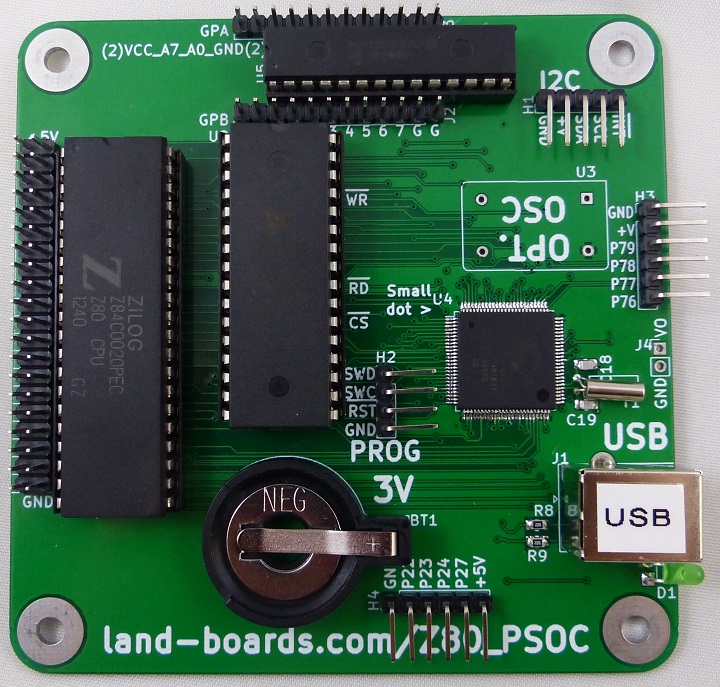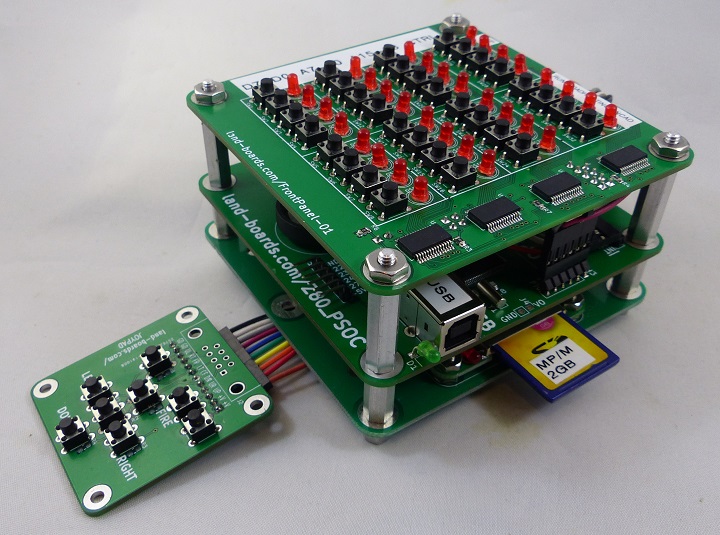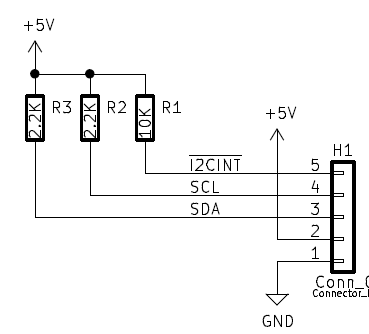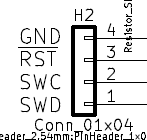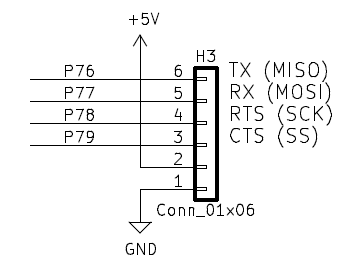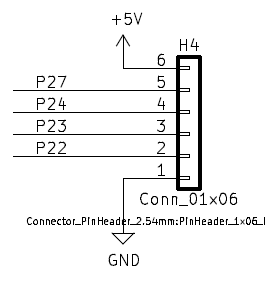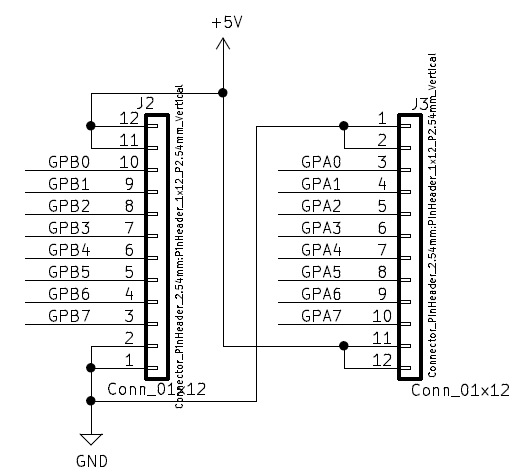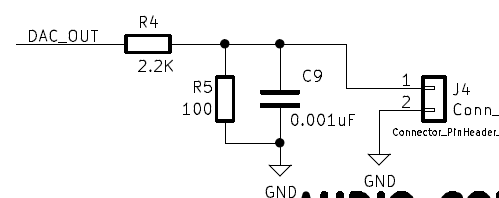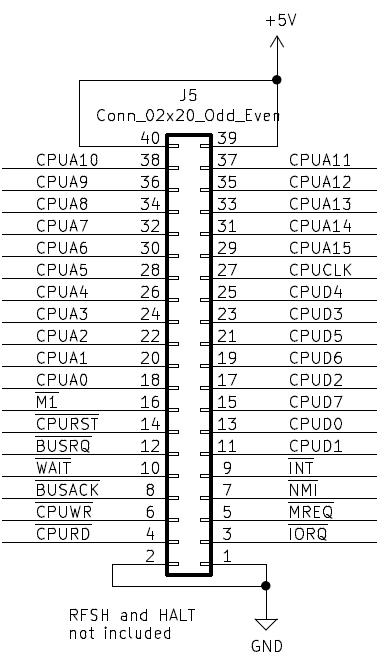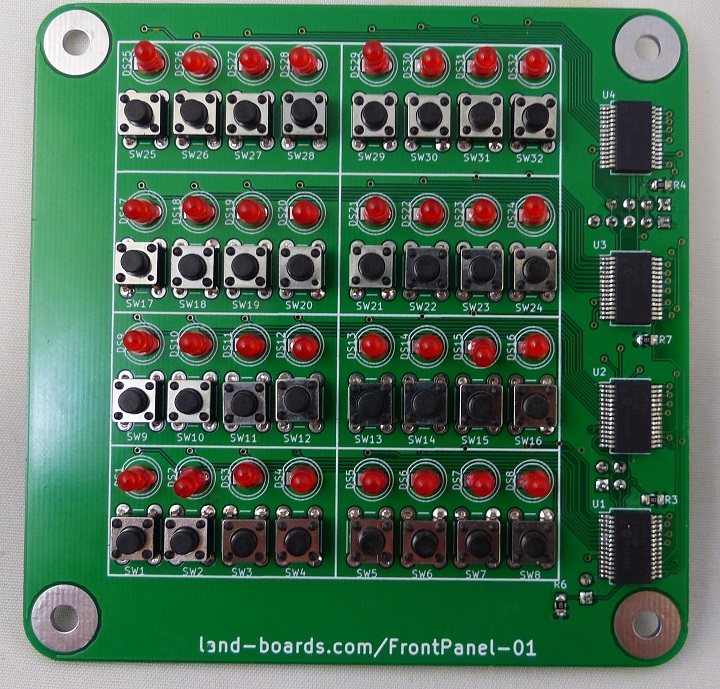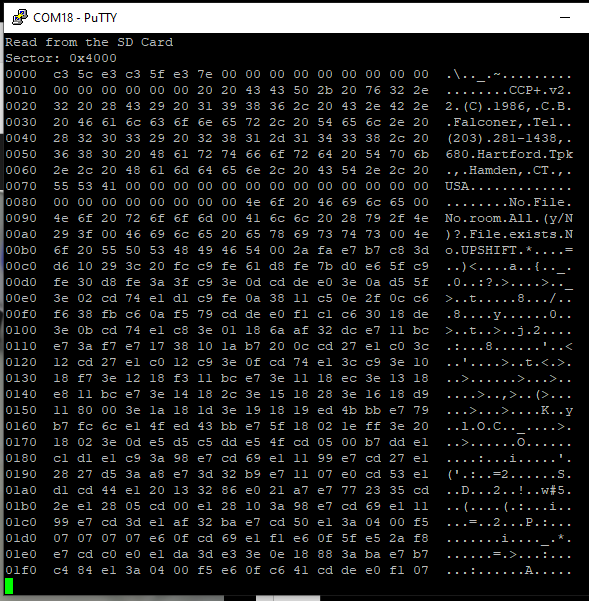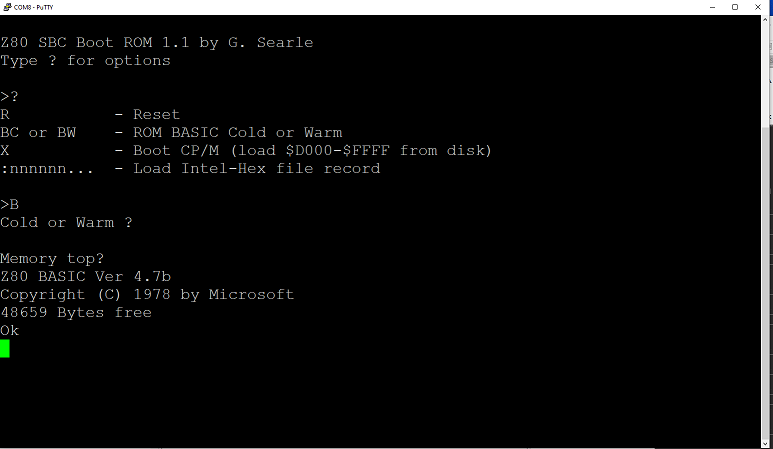Difference between revisions of "Z80 in 3 Chips"
Jump to navigation
Jump to search
Blwikiadmin (talk | contribs) |
Blwikiadmin (talk | contribs) |
||
| Line 119: | Line 119: | ||
* [https://github.com/douggilliland/Retro-Computers/tree/master/Z80/PSOC/PSOC_Design_Files/Z80-PSoC-3-Chips_002 PSoC Code Github repo] | * [https://github.com/douggilliland/Retro-Computers/tree/master/Z80/PSOC/PSOC_Design_Files/Z80-PSoC-3-Chips_002 PSoC Code Github repo] | ||
| − | + | <pre> | |
| + | Land Boards, LLC - Z80_PSoC monitor | ||
| + | I - Initialize SD Card | ||
| + | B - Blink LED | ||
| + | F - Read Front Panel | ||
| + | Rxxxxxxxx - Read sector xxxxxxxx from the SD Card | ||
| + | N - Read next sector from the SD Card | ||
| + | W - Write to the SD Card at 2GB - 1 sector | ||
| + | X - eXit Monitor and run Z80 | ||
| + | ? - Print this menu | ||
| + | </pre> | ||
* Type to check the SD card | * Type to check the SD card | ||
Revision as of 08:52, 7 September 2022
Features
- Z80
- 12.5 MHz operation
- 512KB SRAM
- PSoC5LP
- Z80_PSoC Datasheet - generated from PSoC Creator
- PSoC5 LP emulates standard Z80 peripheral chips
- Serial port with USB
- Memory Management Unit (MMU)
- Controls 512KB SRAM
- Loader moves EPROM code to SRAM
- Controls CPU reset
- Optional MCP23017 16-bit port expander
- I2C Addresses 0x24
- Optional Front Panel
- I2C Addresses 0x20-0x23
- SPI interface for SDHC card
Stackup (top to bottom)
- Front Panel For 8 Bit Computers
- 32 LEDs
- 32 pushbutton switches
- I2C interface
- Z80 in 3 Chips (this card)
- SD_CARD_X49 mounted on CARRIER95TO49MM
- JOYPAD
Connectors
H1 - I2C Interface
- Connects to Front Panel Card via I2C
H2 - ISP Download
- Connects to PSoC programmer
H3- Serial Port or SPI (SD Card)
H4 - I/O
J1 - USB B
- 5V card Power
- USB to Serial comm port
J2, J3 - I/O Ports
- J3 connects to JOYPAD on GPA connector
J4 - Audio Out
- DAC is the Analog function generator in the PSoC
J5 - Z80 Signals
- Useful for monitoring the CPU lines
Software
- Hardware/Software options are set in the PSoC "Hardware_Config.h" file
- Comment out all but one choice
- Options
- GRANT_9_CHIP_Z80
- GRANT_7_CHIP_Z80
- GRANT_7_CHIP_Z80_STANDALONE
- GRANT_FPGA_CPM
- MULTIBOOT_CPM
Front Panel
- Card waits on USB connection
- Run PuTTY
- Message
Z80_PSoC - Running Front Panel Press SW25 to exit and run Z80 Press SW26 to run Monitor/Test Code
- Card boots into Front Panel Control
- SRAM can be examined/changed in SRAM from the Front Panel
- Options to run Z80 or PSoC Monitor
- SW32 (Upper right) = Increment address, read
- SW31 = Store data, increment address, read data
- SW30 = Load Address, read memory
- SW29 = TBD
- SW28 = TBD
- SW27 = TBD
- SW26 = Run Monitor
- SW25 (Upper Left) = Run Z80
Z80_PSoC Monitor
- Press SW26 button (one in from upper left) button on Front Panel For 8 Bit Computers to run the Monitor
- PSoC Code Github repo
Land Boards, LLC - Z80_PSoC monitor I - Initialize SD Card B - Blink LED F - Read Front Panel Rxxxxxxxx - Read sector xxxxxxxx from the SD Card N - Read next sector from the SD Card W - Write to the SD Card at 2GB - 1 sector X - eXit Monitor and run Z80 ? - Print this menu
- Type to check the SD card
R4000
- Result:
Multiboot Multicomp (MULTIBOOT_CPM)
- CP/M Multiboot - Runs MultiComp 512KB SRAM version
- Insert "M/CPM 512KB" SD card
- Insert USB B cable
- Run PuTTY
- 115,200 baud
- Card will power up and cycle through all the LEDs on the Front Panel
- Press SW25 (upper left button) on Front Panel For 8 Bit Computers to run Multiboot software
- PuTTY will display
Press [SPACE] to activate console
- Press SPACE
- Press H for help menu
>
Available Commands:
:ccxxxxiibbbbbb Load Intel-Hex file record
Rxxxx Run from address xxxx
Sddd System boot
Iddd Init: Format directory
Pddd[,xxxx] PutSys: write system image[,loadaddress]
(No address: re-use last loadaddress)
Gddd[,xxxx] GetSys: load system track
Dxxxx[,yyyy] Dump memory from xxxx [,to yyyy]
D (no address) shows next block
Cxxxx Change/show memory at xxxx
CR advances "," quits
ddd is a decimal volume number,
xxxx, yyyy is a hexadecimal address.
Leading zeros may be omitted.
ESC or ^C aborts.
Mount Primary Volume
- Type Snnn to select OS at multiboot (loads to A:)
- S1 - Dos+ 2.5 Copyright 1986 (c) by C.B. Falconer, CCP+ Ver. 2.2 (CP/M 2.2 compatible) - wirks
- S2 - Z80 CP/M BIOS 2.20 (c) 1979 by Digital Research - works
- S3 - CP/M Version 3.0 BIOS (2016/9/13) - partly boots/then stops
- S4 - MP/M II V2.1 - partly boots/then stops
- S5 - Z80 BASIC Ver 4.7b, Copyright (C) 1978 by Microsoft
- 57694 Bytes free
- S6 - ZSDOS v1.1 (c) 1986-8 Harold F. Bower & Cameron W. Cotrill, ZCPR2 (c) 1982 by Richard Conn (CP/M 2.2 compatible)
- Fails to find clock but boots
- S7 - ZCPR compatible system for CP/M+ (CP/M 3.0) by Simeon Cran - works
- SBC-2G-512 on Retrobrewing site - Original author
- GitHub copy of SBC-2G-512
- M: drive is a 892KB RAMDISK (doesn't seem to work)
Mount Additional Volumes
- Mount additional drives using mount command
- mount d vol
- Ex: mount b: 9 will mount ZCPR3 Utilities A-O as drive b:
- Can (re-)mount different volume to same drive with same command
- mount d vol
- Additional Volumes
- Inspired by mc-2g-1024 original but modified
- Sources from here
- Volume.008 - ?
- Volume.009 - ZCPR3 Utilities A-O
- Volume.010 - ZCPR3 Utilities P-Z
- Volume.011 - Wordstar, DBase, SuperCal
- Volume.012 - Games
- Volume.013 - MuMath
- Volume.014 - Documentation
- Volume.015 - Languages (TurboPascal, Fortran, BBC BASIC)
- Volume.016 - Languages (Algol, Aztec C, APL, PLI, FORTH)
- Volume.017 - Languages (BDS Tiny C, Janis Ada15, MS COBOL, PILOT)
- Volume.018-253 - User volumes
Z80 BASIC Ver 4.7b
Reference Designs
Hackaday Page
Videos
